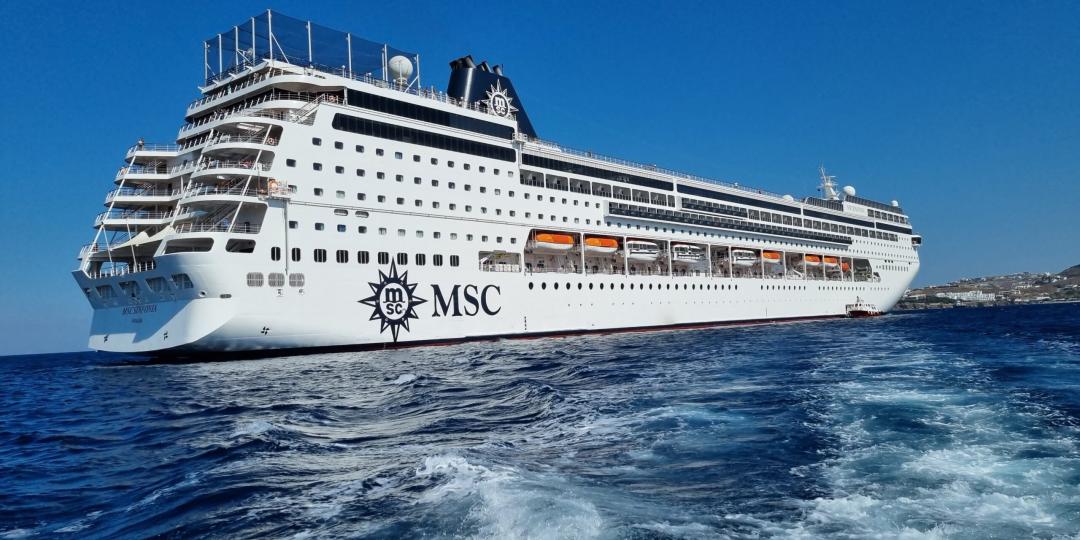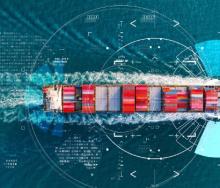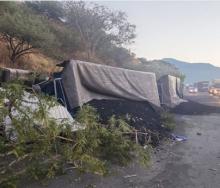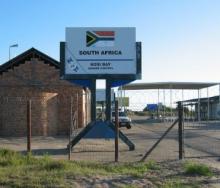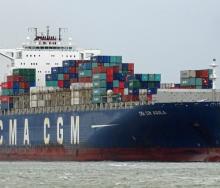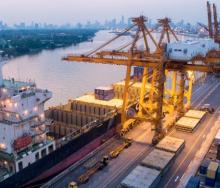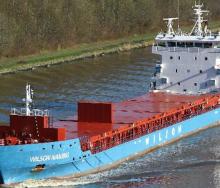MSC has appealed to Transnet to extend the Port of Cape Town’s (PoCT) passenger berth to accommodate larger cruise liners after port management claimed that vessels calling at the port were encroaching on cargo handling berths.
The shipping firm warned that the calling of cruise liners at the port hung in the balance, depending on how Transnet dealt with the allocation of berths to safely process passenger vessels.
This comes after Transnet National Ports Authority (TNPA) and Transnet Port Terminals (TPT) requested that the MSC Sinfonia berth at cargo Berth C or D rather than passenger Berth E at the Cape Town Multi-Purpose Terminal (CTMPT), claiming the longer, 274m vessel jutted into a cargo-handling berth, interfering with operations.
MSC operations director Captain Ian Rosario said the firm had held several meetings with TNPA and TPT to resolve the challenge in recent weeks.
He said the cruise liner had arrived on January 27, but Transnet had initially advised MSC that she should rather berth at C and D terminals instead of at the passenger terminal. However, when MSC raised concern about the impact on passengers, the parastatal backtracked and allowed the vessel to berth in the passenger terminal.
“We have been given the undertaking that this matter has been temporarily resolved, which means that the cruise liners will be afforded a berth at the dedicated passenger terminal, albeit this concession was put across as a favour rather than in appreciation for deploying passenger vessels in the region, which are influential in providing impetus to the local economies,” Rosario said.
PoCT manager, Rajesh Dana, said the port was currently in peak deciduous fruit export and cruising seasons.
“The increased number of vessels calling the Port of Cape Town during the peak season has necessitated the constant review of how and where the port berths vessels to ensure that all PoCT infrastructure, including berths, are optimally utilised, and that vessel and cargo operations are efficient.”
Dana said all cruise vessels handled from January 27-29 had been safely berthed at the Cruise Terminal (E-berth).
Rosario said all cruise liners were supposed to berth at E-berth, which had a quay length of 226 metres.
“Most passenger vessels are over this allocated length and a portion of the length of the cruise liners, approximately 50 metres, overhangs into F-berth, which is leased by TNPA to TPT. TPT claims this impedes on the productivity of cargo vessels deployed at F and G berths,” Rosario said.
He added that the combined length of F and G berths was 500 metres, where one 230m container vessel was predominantly serviced.
“There is more than sufficient length to work a single vessel between the two berths.”
However, he said there was some difficulty working the vessels as the ships got pushed towards G-berth, where an old 5 000sqm unused shed was impeding smooth operations.
“But the fact of the matter is that the vessels can still carry out cargo operations. Historically, for the past quarter of a century, cruise liners have been berthing at the allocated passenger terminal, and now, all of a sudden, the cruise industry has to find another non-existent home for the passenger vessels.”
TNPA has offered C and D berths - conventional cargo berths - but this would mean the logistics of the passenger terminal would need to be altered.
“Passengers would have to walk and queue an additional 400 metres, perhaps in the blazing heat at times. One must also be wary of senior citizens who are old and frail. Passenger terminals have different dynamics to deal with in the interest of the passengers’ safety and proximity to amenities in terms of immigration controls, customs controls, security and passenger baggage that must be scanned and trolleyed to and from the ship. It is only logical to have the passenger vessels berth at the dedicated cruise terminal,” he said.
“It is incumbent on the port authorities at Transnet and the local municipality to afford the passengers a pleasant and memorable experience, executing everything in their ability to ensure such a platform is created.”
He said the encroachment of lengthier passenger vessels into the F-berth had “little or no impact” on container vessels.
“Most passenger vessels occupy a berth for approximately less than 12 hours for a couple of days during the course of the week. Records have clearly shown that there is no impact on productivity at the cargo working berths.”
Globally passenger vessels are afforded priority over any other vessels, except naval vessels.
He said Durban port had successfully accommodated cruise liners, before its new passenger terminal had been built, allocating the M shed in a multipurpose terminal that predominantly handled ro-ro vessels.
“The ro-ro vessels, despite being on a stringent and planned schedule, were instructed to work around the schedule of the passenger vessels. The local municipalities strongly supported the decision in the national interest.”
However, he believes the Port of Cape Town lacks “a holistic understanding” of the national interest in accommodating the vessels.
“This is a sensitive matter and any action or inaction may decide the future of cruise liners calling the Port of Cape Town. The suggested solutions would be to officially increase the length of the passenger terminal to 300 metres, which translates into leasing lesser space to TPT by TNPA,” Rosario said.
He added that the shed at G-berth must be demolished as it has remained unused for years.
“This will phenomenally increase the stacking area for the containers and allow added flexibility for the mobile harbour cranes.”
Dana said TNPA was discussing the matter with port stakeholders.
“TNPA continues to collaborate with all affected stakeholders to optimise the value proposition of the port, to support the endeavours to grow the cruise economy and promote Cape Town and the Western Cape as a destination of choice for cruise passengers.”
